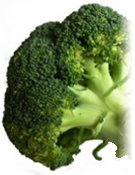Guide to Preventing Sugar Cravings
How to Beat an Addiction to Sugar and Sweet Foods
Are you looking for effective ways to beat a sugar addiction? Here you will find a whole slew of nutrition-related resources for people who want to break free of an addiction to sugar and sweet foods.
A sugar addiction causes over-indulgence in sweets and other sugary treats which can lead to many health complications in the long term, including obesity, diabetes, tooth decay, heart disease, and certain types of cancer. In the short term, a high consumption of sugar may cause mood swings and make you feel tired or irritable. Some of the negative effects of sugar are linked to its effect on the hormone insulin and its high calorie count (table sugar, also known as sucrose, has 387 calories per 100 grams or 3.5 ounces), while others are linked to the impact of sugar on vital nutrients. Refined sugar is void of vitamins and minerals, so your body will have to borrow these nutrients from healthy cells in order to be able to metabolize the sugary food. This will cause your body to deplete its stores of vitamins (especially vitamin C and the B complex vitamins), minerals, and enzymes.
Yet, despite everything we know about the negative effects of sugar on health, the Western world seems to be addicted to sugar. We add sugar to our foods, and we indulge in store-bought foods that contain tons of added sugar. According to estimates, the average American consumes 125-160 pounds of sugar every year.
But why is it so difficult to beat an addiction to sugar and sweets? The answer lies in evolution: Early humans lived in an environment where quick sources of energy were scarce, and thus their taste buds evolved to like foods that provide an abundance of readily available energy. Sugar is an excellent source of energy, and a sweet taste typically indicates that a food is rich in sugar. In addition, non-poisonous plants tend to have a sweet taste while poisonous plants are typically bitter, which may also have encouraged our ancestors to develop a natural preference for sweet foods.
At a cellular level, sugar and other sweet substances appear to stimulate the brain's beta-endorphin receptor sites, the same chemicals that are activated after a drug addict ingest heroin or morphine. Although the addictive properties of sugar are nowhere near the effects of illegal drugs, it may still be difficult to cut those sweet cravings. To help you break free of a sugar addiction, we have put together this online guide to conquering sugar cravings. To learn all about how to fight sugar cravings naturally by revamping your diet, check out the following resources:

8 Diet Tips to Fight Off Sugar Cravings
In this section of HealWithFood.org's Guide to Beating a Sugar Addiction, you will learn how certain dietary habits – such as eating more foods that deliver serotonin and tryptophan, stepping up your chromium and vitamin B intake, and choosing low glycemic foods – can help keep sugar cravings at bay. View Diet Tips
View Diet Tips
10 Foods That Help Curb Sugar Cravings
From chicory greens and cinnamon to fish and beans, the scope of natural remedies for curing a sugar addiction is broad. This section provides an overview of the best foods for beating cravings for sugar and sweets. View Food List
View Food List
Recipes for Preventing Sugar Cravings
Treat your taste buds to low glycemic raspberry muffins – not only are they rich in complex carbohydrates, they also contain cinnamon which has been shown to reduce sugar cravings! Or how about a bowl of tomato soup that is packed with chromium and serotonin, two of the most important natural weapons against a sugar addiction? To view the recipes for these dishes and other anti-craving dishes, click on the link below. View Recipes
View Recipes








